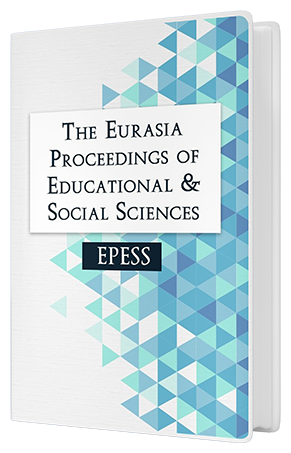Examination of Students’ Metacognitive Awareness and Their Physical Problem Solving Strategies
Keywords:
Metacognitive awareness, Physical problem solving, High school studentsAbstract
Although studies suggest that metacognitive strategy instruction can promote increased problem solving in the classroom, little evidence has been collected that directly probes the role of metacognition in problem solving. This study examined high school students’ metacognition and physical problem solving skills and looked for a relationship between the two. A correlational research design was carried out for this research. Participants of the study were eleventh graders studying in an urban all-boys school. The Metacognition Awareness Inventory was administered to determine the students’ metacognition. Physical Problem Solving Assessment Inventory was used to assess the participants’ problem solving strategies. Results showed that the students’ metacognitive awareness level was close to high. Their knowledge about cognition was higher than their regulation of cognition. Additionally, the students’ physical problem solving strategies were little. Results also presented that the more metacognitive awareness the students had the more knowledge of reading they had. Pearson correlation coefficient analyses indicated a significant medium level positive relationship between the students’ metacognitive awareness and their physical problem solving strategies.Downloads
Published
Issue
Section
License
Copyright (c) 2018 The Eurasia Proceedings of Educational and Social Sciences

This work is licensed under a Creative Commons Attribution-NonCommercial-ShareAlike 4.0 International License.
The articles may be used for research, teaching, and private study purposes. Any substantial or systematic reproduction, redistribution, reselling, loan, sub-licensing, systematic supply, or distribution in any form to anyone is expressly forbidden. Authors alone are responsible for the contents of their articles. The journal owns the copyright of the articles. The publisher shall not be liable for any loss, actions, claims, proceedings, demand, or costs or damages whatsoever or howsoever caused arising directly or indirectly in connection with or arising out of the use of the research material. All authors are requested to disclose any actual or potential conflict of interest including any financial, personal or other relationships with other people or organizations regarding the submitted work.




